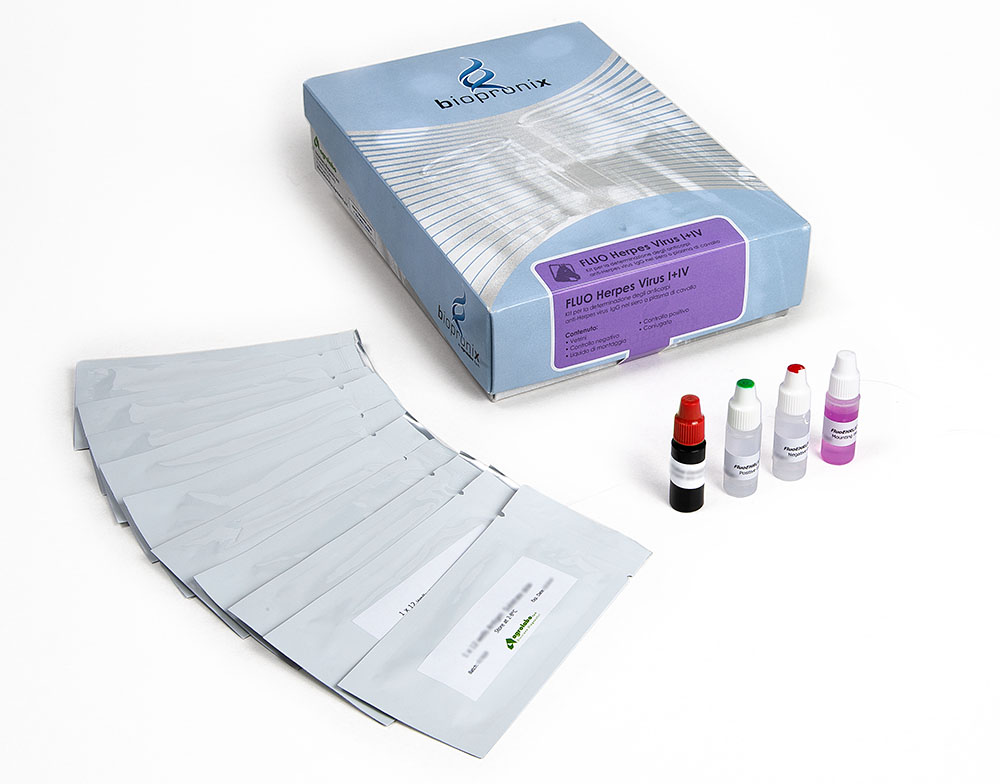FLUO Herpesvirus EHV-1/EHV-4
IFA kit for the detection of IgG antibodies to Herpesvirus 1 and Herpesvirus 4
Fluo Herpesvirus EHV-1 / EHV-4 is a test based on the immunofluorescence technique for the detection of IgG antibodies to Herpesvirus 1 and Herpesvirus 4 in horse serum or plasma samples.
Equine Herpesviruses 1 and 4 (EHV-1 and EHV-4) are double stranded DNA viruses of the Herpesviridae family, Alphaherpesvirinae subfamily and are endemic in the equine population. The two viruses are responsible for: respiratory forms such as rhinopneumonia, epizootic abortion, neonatal death and neurological disorders such as myeloencephalopathy.
Following primary infection, the virus becomes latent for life and stressful factors can reactivate and lead to the elimination of the virus, giving or not clear clinical symptoms.
The infection is spread mainly by inhalation of infected material, such as nasal discharge, coughing or sneezing, or, after abortion, from the placenta, its fluids, the fetus or stillborn foal.
Equine Herpesvirus type 4 is a common cause of respiratory diseases, especially in young horses, but is rarely particularly virulent. Equine Herpesvirus type 1 also causes respiratory symptoms, but is known above all for its ability to cause late abortions, usually after the 7th month of gestation, neonatal illness and death and myeloencephalopathy.
Symptoms are variable and include fever, nasal and ocular discharge, enlargement of the submandibular lymph nodes, cough and dyspnoea, neurological forms may include depression, ataxia and paralysis of the hind limbs which later also passes to the forelimbs, decubitus and problems with urination.
There is a prophylaxis with vaccines which, despite not fully protecting, are able to reduce the incidence of infection, the risk of spread and the severity of clinical symptoms. However, vaccination does not prevent sporadic miscarriages.
